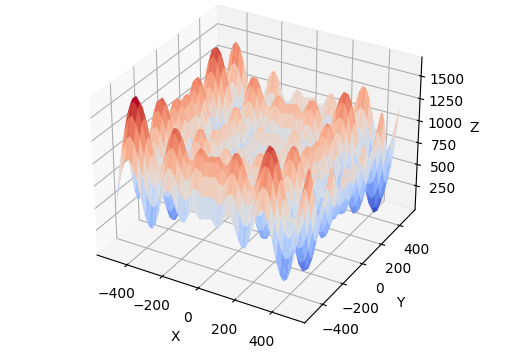Multi-Agent Path Finding (MAPF) is the problem of finding a set of collision-free paths for multiple agents in a shared environment while minimizing the sum of travel times. Since the MAPF problem is NP-hard to solve optimally, anytime algorithms are promising to quickly find a solution and keep optimizing it before interrupting. The current state-of-the-art anytime algorithm for MAPF is based on Large Neighborhood Search (LNS), called MAPF-LNS, which is a combinatorial search algorithm that iteratively destroys and repairs a subset of collision-free paths in order to optimize the sum of travel times. However, the destroy and repair operations in MAPF-LNS can be time-consuming, thus limiting the effectiveness due to fewer iterations and scalability w.r.t. the number of agents. In this paper, we propose Destroy-Repair Operation Parallelism for LNS (DROP-LNS), a parallel framework that performs multiple destroy and repair processes simultaneously to explore a larger searching space under a limited time budget. Unlike MAPF-LNS, DROP-LNS is able to exploit parallelized hardware to improve the solution quality. We extend DROP-LNS to two alternatives and conduct experimental evaluations to compare the performance. The results show that DROP-LNS significantly outperforms the state-of-the-art.
@inproceedings{ chanAAMAS24,
author = "Shao-Hung Chan and Zhe Chen and Dian-Lun Lin and Yue Zhang and Daniel Harabor and Sven Koenig and Tsung-Wei Huang and Thomy Phan",
title = "Anytime Multi-Agent Path Finding using Operator Parallelism in Large Neighborhood Search",
year = "2024",
abstract = "Multi-Agent Path Finding (MAPF) is the problem of finding a set of collision-free paths for multiple agents in a shared environment while minimizing the sum of travel times. Since the MAPF problem is NP-hard to solve optimally, anytime algorithms are promising to quickly find a solution and keep optimizing it before interrupting. The current state-of-the-art anytime algorithm for MAPF is based on Large Neighborhood Search (LNS), called MAPF-LNS, which is a combinatorial search algorithm that iteratively destroys and repairs a subset of collision-free paths in order to optimize the sum of travel times. However, the destroy and repair operations in MAPF-LNS can be time-consuming, thus limiting the effectiveness due to fewer iterations and scalability w.r.t. the number of agents. In this paper, we propose Destroy-Repair Operation Parallelism for LNS (DROP-LNS), a parallel framework that performs multiple destroy and repair processes simultaneously to explore a larger searching space under a limited time budget. Unlike MAPF-LNS, DROP-LNS is able to exploit parallelized hardware to improve the solution quality. We extend DROP-LNS to two alternatives and conduct experimental evaluations to compare the performance. The results show that DROP-LNS significantly outperforms the state-of-the-art.",
url = "https://arxiv.org/pdf/2402.01961.pdf",
eprint = "https://arxiv.org/pdf/2402.01961.pdf",
location = "Auckland, New Zealand",
booktitle = "Extended Abstracts of the 23rd International Conference on Autonomous Agents and MultiAgent Systems",
pages = "2183--2185",
doi = "https://dl.acm.org/doi/10.5555/3635637.3663101"
}
Related Articles
- T. Phan et al., “Spatially Grouped Curriculum Learning for Multi-Agent Path Finding”, AAAI 2026
- T. Phan et al., “Truncated Counterfactual Learning for Anytime Multi-Agent Path Finding”, AAAI 2026
- T. Phan et al., “Generative Curricula for Multi-Agent Path Finding via Unsupervised and Reinforcement Learning”, JAIR 2025
- T. Phan et al., “Anytime Multi-Agent Path Finding with an Adaptive Delay-Based Heuristic”, AAAI 2025
- T. Phan et al., “Confidence-Based Curriculum Learning for Multi-Agent Path Finding”, AAMAS 2024
- T. Phan et al., “Adaptive Anytime Multi-Agent Path Finding using Bandit-Based Large Neighborhood Search”, AAAI 2024
Relevant Research Areas

